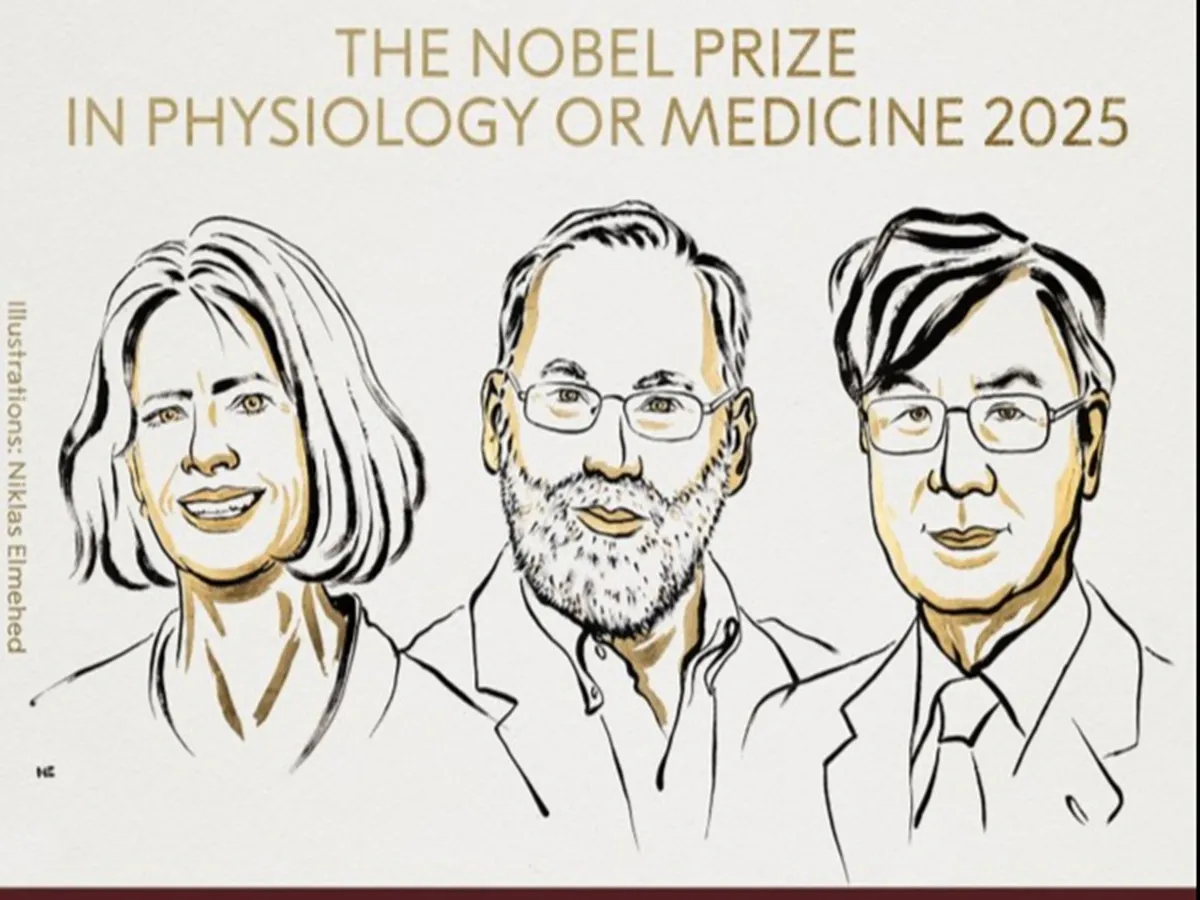Trending
Nobel Prize in Medicine 2025: 3 scientists awarded for breakthroughs in immune tolerance research
.png)
2 min read | Updated on October 06, 2025, 16:59 IST
SUMMARY
Mary E. Brunkow, Fred Ramsdell, and Shimon Sakaguchi have been awarded the 2025 Nobel Prize in Physiology or Medicine for their groundbreaking discoveries on how the immune system prevents attacks on the body’s own tissues.

Three scientists from the United States and Japan won the 2025 Nobel Prize in Physiology or Medicine on Monday for discoveries that explained how the body’s immune system learns to tolerate its own tissues.
Mary E. Brunkow, Fred Ramsdell and Shimon Sakaguchi were on Monday awarded the 2025 Nobel Prize in Physiology or Medicine for discoveries that explained how the body’s immune system learns to tolerate its own tissues, preventing it from attacking the body’s own organs.
The trio were honoured “for their discoveries concerning peripheral immune tolerance,” which revealed the mechanisms that keep the immune system in check and protect against autoimmune diseases.
The discovery has been instrumental in understanding autoimmune diseases and has paved the way for new treatments for cancer, autoimmune disorders, and organ transplantation.
“Their discoveries have been decisive for our understanding of how the immune system functions and why we do not all develop serious autoimmune diseases,” said Olle Kämpe, chair of the Nobel Committee.
Sakaguchi, a Japanese immunologist at Osaka University, first identified in 1995 a new class of immune cells that protect the body from self-destruction. His work challenged the prevailing belief that immune tolerance only developed in the thymus and showed instead that a separate layer of regulation existed in the body’s periphery.
Brunkow and Ramsdell, both American scientists, built on that discovery in 2001, finding that a mutation in a gene they named Foxp3 caused severe autoimmune disease in mice. They later showed that mutations in the human version of Foxp3 led to a similar disorder known as IPEX syndrome.
Two years later, Sakaguchi linked the findings by showing that Foxp3 governs the development of the cells he had earlier discovered, now known as regulatory T cells. These “immune system security guards” monitor other immune cells to ensure that the body’s own tissues are not attacked.
The laureates’ research has laid the foundation for new medical approaches to treating autoimmune diseases, cancer, and organ transplant rejection. Several therapies inspired by their work are now in clinical trials.
Brunkow, 64, is Senior Program Manager at the Institute for Systems Biology in Seattle; Ramsdell, 65, is Scientific Advisor at Sonoma Biotherapeutics in San Francisco; and Sakaguchi, 74, is Distinguished Professor at Osaka University’s Immunology Frontier Research Center.
The three scientists will share the prize amount of 11 million Swedish kronor (about USD 1 million).
The Nobel Prize in Physiology or Medicine, first awarded in 1901, is conferred annually by the Nobel Assembly at Karolinska Institutet, comprising 50 professors who evaluate nominations for discoveries that have profoundly benefited humankind.
By signing up you agree to Upstox’s Terms & Conditions
About The Author
Next Story

